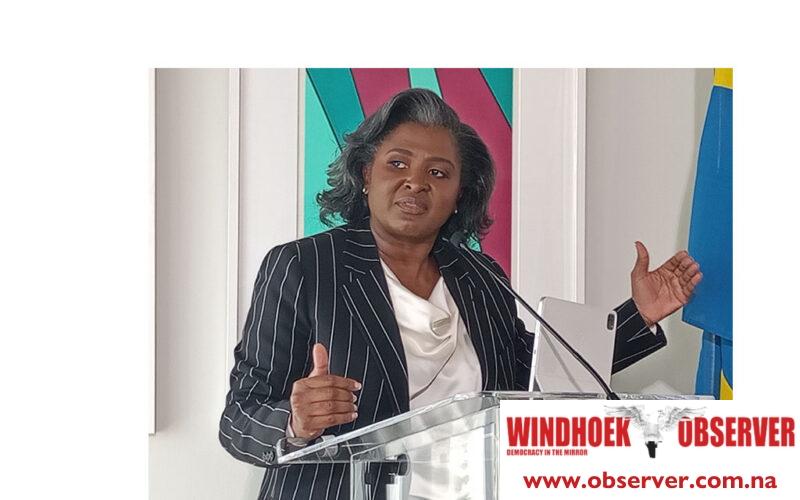Moses Magadza
Former first lady Monica Geingos has emphasised the urgent need to champion sexual and reproductive health and rights (SRHR) for young people across East and Southern Africa.
Geingos was the keynote speaker last Thursday at a regional dialogue themed “Transforming Futures: Exploring Strategies for Accelerating Collective Regional Actions to Advance Sexual and Reproductive Health and Rights,” hosted by the Swedish ambassador to South Africa, Namibia, and Lesotho Hakan Juholt at his residence in Pretoria.
“We are in this together,” he said and stressed the need to uphold “human dignity, human rights, and mutual respect because we are one huge family… all vulnerable, depending on each other.”
Geingos highlighted her commitment to SRHR issues drawn from personal experience and underscored the persistent stigma surrounding discussions about SRHR, noting that the political landscape often discourages open dialogue.
“Speaking as a Former First Lady, I was always confronted by accusations of wanting political office. I always told people that if I wanted political office, I would not speak on issues of sexual reproductive health and rights because that is the quickest way to de-campaign yourself,” she remarked.
She expressed concern over a regression in SRHR discourse and urged continued conversations about pressing issues like HIV, which she noted had faded from public awareness.
“There was a time when everywhere you looked, there were messages around HIV and behaviour change that kept people knowledgeable and protected. That has stopped,” she lamented.
She argued for smaller, focused discussions over large conferences that often result in dissatisfied attendees.
“These smaller conversations are the ones that will move us forward,” she asserted.
She emphasised the importance of tapping into the strengths of both the private and public sectors to address complex health challenges.
In her quest to understand and effectively address the needs of young people, Geingos advocated for conversations that resonated with their interests and concerns.
She shared insights from her experience in Namibia, where her team went into community spaces like bars, hair salons, and shebeens to engage youth in discussions tailored to their local contexts.
“Some issues were best addressed through drama, community theatre, or music,” she explained.
Geingos also pointed to successful partnerships, such as those with the Namibian Government and UNFPA, which have allowed the centre to expand its reach and services.
She emphasised that youth should drive the conversation around their needs. She advocated for comprehensive sexuality education that, while potentially controversial, is essential for empowering the youth population.
“We have learnt that service providers must be willing to have uncomfortable conversations and to compromise,” she explained.
Geingos called for united efforts to transform regional approaches to SRHR for young people, underscoring the importance of collaboration, sustainability, and scalability in initiatives designed to promote health and rights.
She said the fight for young people’s sexual and reproductive health rights was far from over, and it required collective perseverance, innovative solutions, and courageous dialogue across the region.
Speaking during the same occasion, Eva Kadilli, the UNICEF Regional Director, provided an overview of accomplishments of the 2gether 4 SRHR (Sexual and Reproductive Health and Rights) programme.
She said this collaborative initiative, formed by UNAIDS, UNFPA, UNICEF, and WHO in conjunction with the Swedish government, seeks to empower individuals in Eastern and Southern Africa to exercise their sexual and reproductive health rights.
Delegates to the roundtable dialogue included Anne Githuku-Shongwe, Regional Director: UNAIDS; Lydia Zigomo, Regional Director: UNFPA; Dr. Matshidiso Moeti, Regional Director for WHO-Afro, who joined in virtually and a representative of the Secretary General of the SADC Parliamentary Forum.
With funding from SIDA, the SADC PF is implementing an SRHR, HIV, and AIDS Governance Project.
The project seeks, inter alia, to build the capacity of Members of Parliaments to review and propose changes to laws, ensure the safety of basic products in the context of universal healthcare coverage, and promote gender equality, including in climate action and eliminating sexual and gender-based violence.




